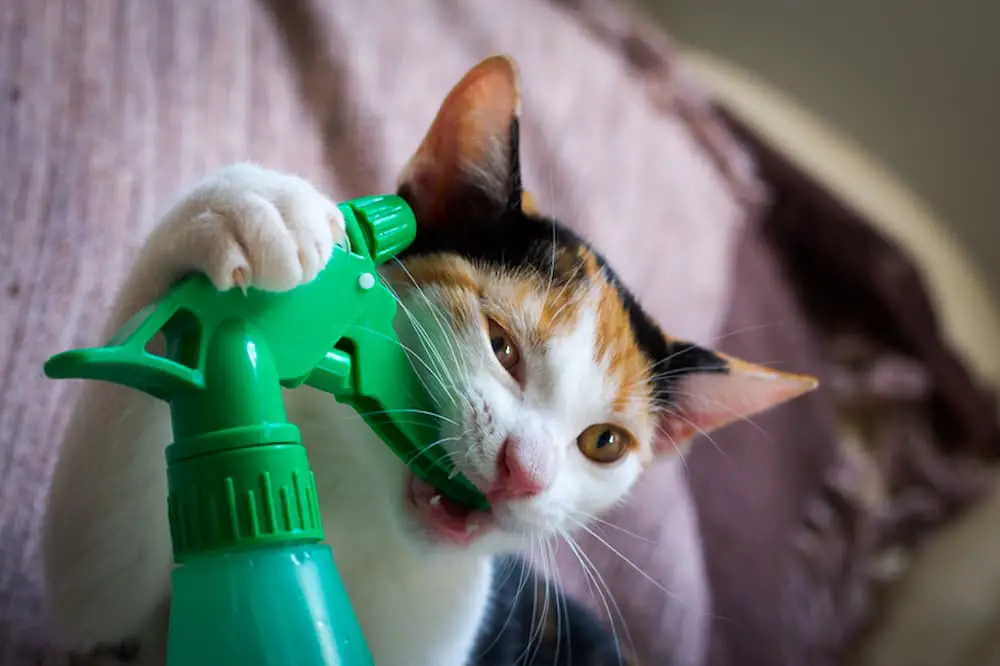
If you’re a cat parent, who’s planning to become a parent to a human baby – it’s important to know about a disease called Toxoplasmosis. Now, before you go and get rid of your cat because you’re pregnant, the Centers for Disease Control (CDC) has concluded that there are relatively few cases of Toxoplasmosis in pregnant women that are actually caused by cats. Most infections come from eating undercooked meat. That said, here are some facts about the disease and its transmission.
1. A small parasite is responsible for toxoplasmosis.
Toxoplasma gondii is a small parasite that’s responsible for toxoplasmosis. Cats become infested with the parasite by eating raw prey. It’s estimated that about 50% of all cats have been infected with it at some point. Outdoor cats are much more likely to become affected.
2. Owning a cat does not make you more susceptible to toxoplasmosis.
There has been a lot of research on the topic, and it indicates that owning a cat does not make you more susceptible to toxoplasmosis. Most cases in humans are a result of eating contaminated fruit, vegetables, and meat – not from exposure to a cat. In fact, veterinarians who work with cats are no more likely to have a T. gondii infection than the general population.
3. A woman who was infected before pregnancy cannot pass it to her baby.
A woman who was infected prior to a pregnancy cannot pass toxoplasmosis on to her unborn child since she’s already built up antibodies. That said, a woman who is exposed to the disease during a pregnancy has a 40% chance of passing it on. Symptoms are most severe if the disease is contracted during the first trimester and risks include a miscarriage or stillbirth.

4. Know the signs of toxoplasmosis.
Signs of toxoplasmosis include fever, loss of appetite, weight loss, lethargy, and general flu-like symptoms.
5. People in high-risk categories should avoid the litter box.
High risk includes pregnant women, elderly, or those who are immune-compromised. Be sure that people who do change the litter box in a home with high-risk people wear rubber gloves and wash their hands after scooping, and scoop the litter box often.
6. The odds of infection are very low — and even lower for your baby.
If you are pregnant and concerned about toxoplasmosis, ask your doctor to perform a simple blood test. If the results show you were exposed, medication may be given and your baby can be treated after birth. Keep in mind, that the odds of getting the disease are very low – and even lower for your baby.
Simple, everyday hygiene habits can reduce the risk of toxoplasmosis infection, either from a cat or another source. It’s perfectly safe to own and enjoy a cat while you’re pregnant!
The Catington Post is reader-supported. That means, if you make a purchase through links on our site, we may earn an affiliate commission. All images and names which are not the property of The Catington Post are the property of their respective owners.







